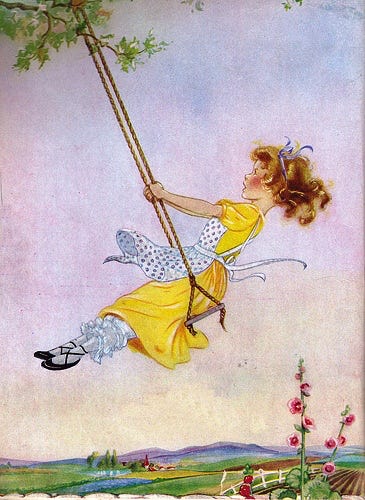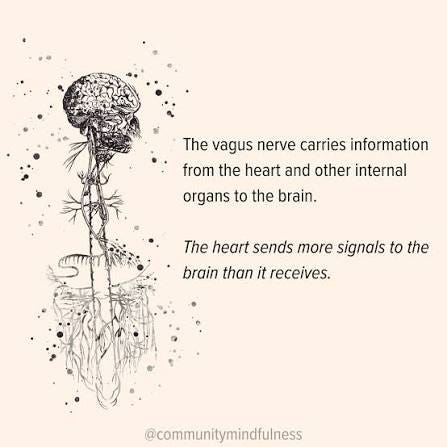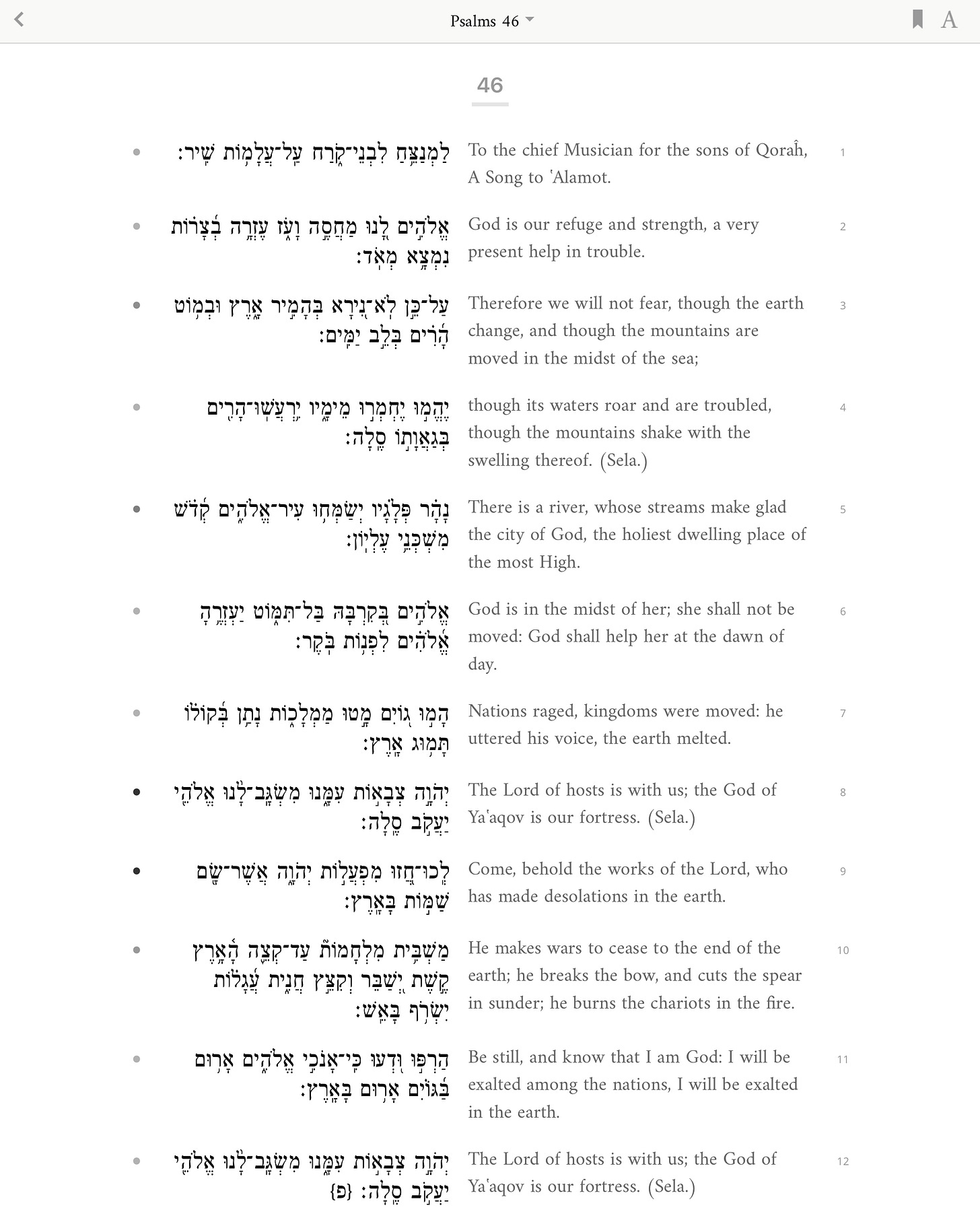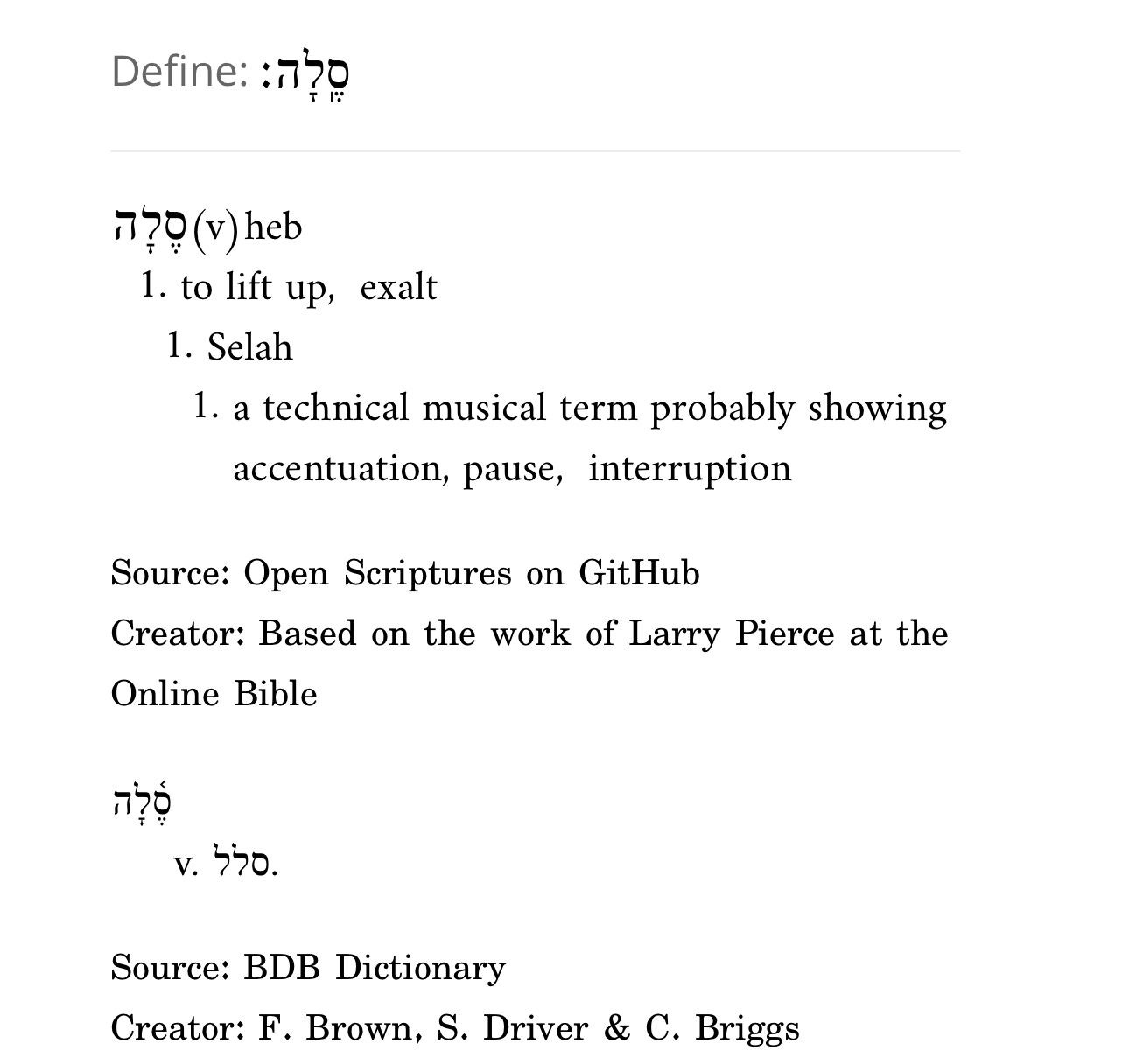There is a River
sermon reflection on psalm 46 and the purpose of biblical poetry
This is the second of two sermon reflections for Sunday, November 23, 2025. In this essay I share my reflections about Peri Zahnd’s sermon, called There is a River, based on Psalm 46.
On Sunday November 23, on Christ the King day, we looked back at the year, as we marked the end of the church year.
Peri Zahnd decided to open her sermon with Psalm 46:5 :: “God is in the midst of the city; it shall not be moved; God will help it when the morning dawns.” A significant portion of the Bible comes to us in poetic verse. Why’s that, we might wonder? What’s the point of poetry, the left brain dominant people among us might ask. Well, poetry moves the heart, its purpose lies in moving our feelings.
“The Swing” by Robert Louis Stevenson, from his poetry book A Child’s Garden of Verses
The SwingHow do you like to go up in a swing,Up in the air so blue?Oh, I do think it the pleasantest thingEver a child can do!Up in the air and over the wall,Till I can see so wide,Rivers and trees and cattle and allOver the countryside—Till I look down on the garden green, Down on the roof so brown-Up in the air I go flying again, Up in the air and down!As a little girl, Peri had the child’s poetry book by Robert Louis Stevenson. She loved that book, and in particular she loved The Swing — so much so that she memorised that poem by heart. What does it mean to know something by heart? It means possessing that something inside the heart. Poetry invites us to feel deeply, it grounds us in the delight of simple pleasures, it invites to see the world with a child-like innocence and delight.
In Matthew 18:3 Jesus tells his disciples, “truly I tell you, unless you change and become like children, you will never enter the kingdom of heaven…” Children know how to feel deeply. And, so, Jesus invites us to walk through life with a child-like demeanour, He wants us to feel sincerely and deeply. He wants us to delight in simple pleasures, to dance and feel uninhibited joy at the simplest of pleasures.
In Matthew 11:16-17 Jesus says, “but to what will I compare this generation? It is like children sitting in the market-places and calling to one another, ‘We played the flute for you, and you did not dance; we wailed, and you did not mourn.’” Jesus rebuked people for being unmoved.
Stoicism isn’t a Christian virtue, self control is though. Perhaps the art of human-ing lies in striking a balance between feeling deeply and exercising self control in that feeling deeply.
In Romans 12:15, Paul advises the Romans to “rejoice with those who rejoice, weep with those who weep.” Reader, we have feelings for a reason — G-d means us to feel them, they convey to us non verbal knowledge to us about our surroundings and, most importantly, about ourselves.
Peri talks about Annabel Lee, a poem by Edgar Allan Poe. Annabel Lee tells a mysterious story, haunting and sad, like many of Poe’s works. So, why do we need poetry in the Bible, then? The right brain people probably know why. To soften our heart, to crack it wide open. On an intimate level, perhaps we resemble chocolate croissants, and we need that evocative verse of poetry to gently reveal the gooey feeling stuff inside. As we grow we think feelings aren’t important and we want facts. But wait, feelings are a kind of knowledge—to feel is to know on a visceral level.
So we have Biblical poetry because the human heart need nourishing, just as the human mind need growing and developing. As we expand the mind, so too, should we expand the heart. Why do you think church service opens with worship songs? Because we need that transformation in order to receive the Word with an open and humble heart. Heart mind soul — we need to be transformed at these levels. Spiritual formation goes hand in hand with these transformations — we cultivate patience when slow down and drink in the words individually. In Psalm 19, the psalmist sings, “let the words of my mouth and the meditation of my heart be acceptable in your sight, oh Lord.” Readers might know that the mouth and the heart have a vital connection in the Vagus Nerve. The Hellenists have it wrong, human bodies have no mind-body duality.
So, let’s take a close look at Psalm 46.
46:2-3 :: God is our refuge and stronghold, a help in trouble, very near.
Therefore we are not afraid though the earth reels, though mountains topple into the sea-its waters rage and foam; in its swell mountains quake. Selah.
Selah — means pause … stop and imagine what’s it’s all like.
Remember, G-d is with us and we will not fear.
46:4-5 :: There is a river whose streams gladden God’s city, the holy dwelling-place of the Most High. God is in its midst, it will not be toppled; by daybreak God will come to its aid.
And then…silence. Safety, peace and quiet.
Imagine a city at dawn, quiet and still and peaceful and safe. G-d is the builder of that city. We are invited by G-d to live there. G-d is our refuge and strength. Sitting in Selah … sigh out relief and letting go. Breathing … inhale G-d’s strength exhaled weakness. Prayer is listening and being with g-d.
Faith begins as a mustard seed. We grow and nurture our faith through our Trust in and love of g-d and His creation. Return to the image of the river flowing, from the psalm.
Prayer :: “Help us to believe that your love will carry us on, even when we feel lost.”
Imagine sitting by the river, watching the logs floating past; like our troubles the logs come and go.
Psalm 1:1-3 :: Happy is the man who has not followed the counsel of the wicked, or taken the path of sinners, or joined the company of the insolent; rather, the teaching of the Lord is his delight, and he studies that teaching day and night. He is like a tree planted beside streams of water, which yields its fruit in season, whose foliage never fades, and whatever it produces thrives. Think about the human who follows the narrow path, The Jesus Way. The psalmist likens such a human to tree by riverside which bears good fruit.
Does Psalm 46:7 sound a bit like Psalm 2:1,5? “Nations rage, kingdoms topple; at the sound of His thunder the earth dissolves,” :: “Why do nations assemble, and peoples plot vain things … Then He speaks to them in anger, terrifying them in His rage.” Then look at verse 8–it serves as the refrain, and the psalmist repeats it in verse 12. Biblical poetry such as the psalms train us to feel our feelings. The convey knowledge at a felt sense about the unseen world of the Divine.
In verses 9 and 10 of Psalm 46 the psalmist writes about G-d destroying war, he writes about G-d destroying destruction. And then in verse 11, the psalmist reminds us of G-d —be still and know that I am G-d.
How can we come to know G-d if we never still ourselves? You cannot see any kind of reflection in boiling water. Think of 1 kings 19, when Elijah has fled from Jezebel for fear of his life. The windstorm comes, the earthquake strikes, and the fire blazes. G-d did not make His presence known in any of these acts of nature. G-d appeared to Elijah in a still small voice, a gentle whisper.
We aren’t G-d, we do try to take His place and save the world, though. We should relinquish the need to save the world—we should place the task of saving the world in the hands of Jesus. G-d keeps His promises. He keeps them in His time and not ours. In the words of Julian of Norwich, “All shall be well, and all shall be well, and all manner of thing shall be well.”









